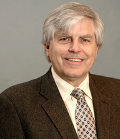Andrew Postlewaite

- Harry P. Kamen Professor
- Full professor in Economics
Contact Information
- Primary Email:
apostlew@econ.upenn.edu - Office Phone:
215-898-3015
- office Address:
3rd Floor Vance Hall
3733 Spruce Street
Philadelphia, PA 19104
Links: Personal Website
Knowledge at Wharton
CJ Handron, Co-founder of Diamond Kinetics
Wharton experts speak with CJ Handron, co-founder of Diamond Kinetics.…Read More
Knowledge @ Wharton - 4/17/2024The Impact of AI on Financial Literacy | Michael Roberts
Professor Michael Roberts discusses whether generative AI can help improve financial literacy.…Read More
Knowledge @ Wharton - 4/16/2024Why Staying in Your 401(k) After Retirement Makes Sense
Many retirees will do better if they keep their savings in their employers’ retirement plans instead of rolling over to IRAs, according to new research co-authored by Wharton’s Olivia S. Mitchell.…Read More
Knowledge @ Wharton - 4/15/2024

